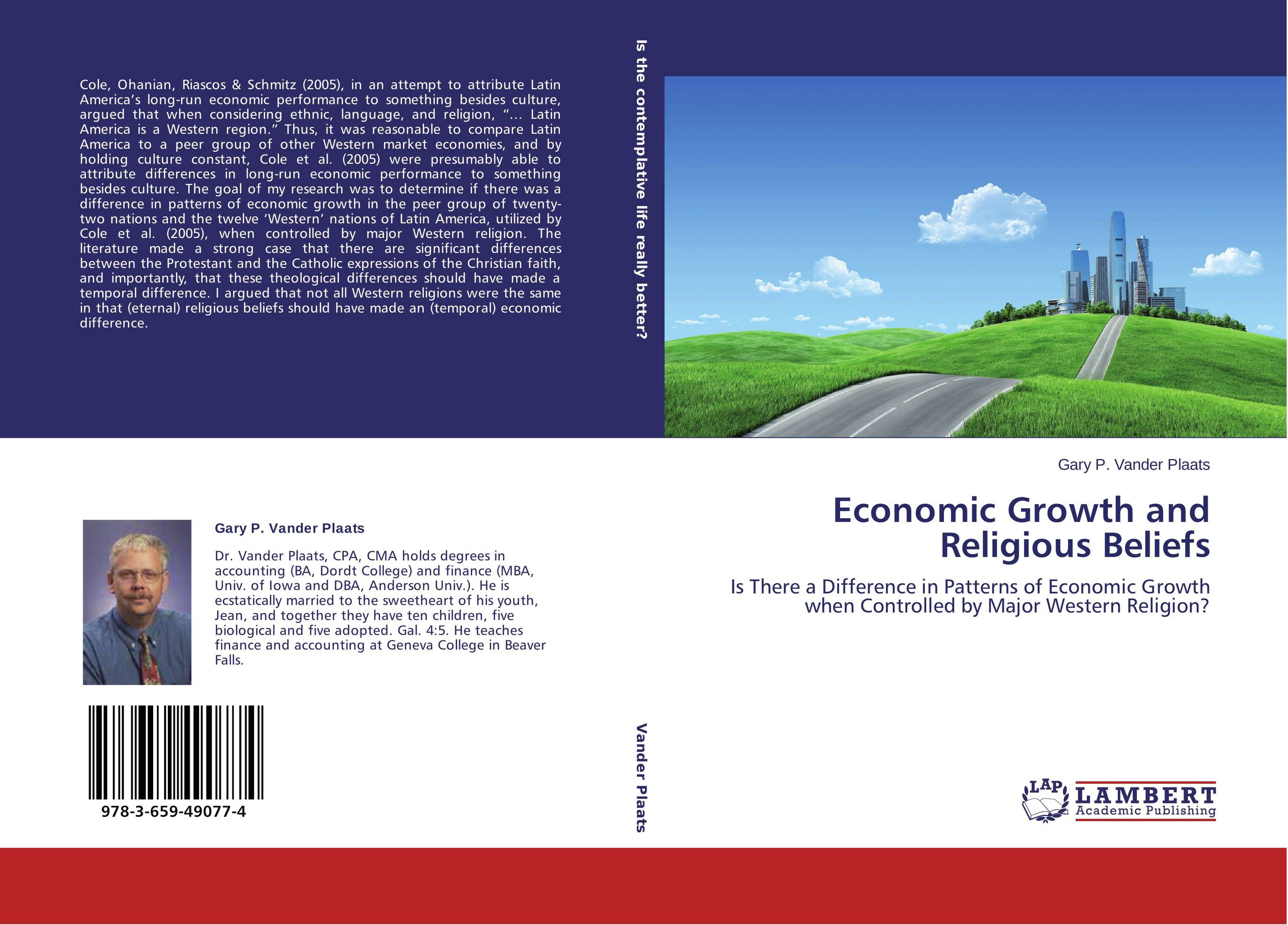| Поиск по каталогу |
|
(строгое соответствие)
|
- Профессиональная
- Научно-популярная
- Художественная
- Публицистика
- Детская
- Искусство
- Хобби, семья, дом
- Спорт
- Путеводители
- Блокноты, тетради, открытки
Economic Growth and Religious Beliefs. Is There a Difference in Patterns of Economic Growth when Controlled by Major Western Religion?

В наличии
| Местонахождение: Алматы | Состояние экземпляра: новый |

Бумажная
версия
версия
Автор: Gary P. Vander Plaats
ISBN: 9783659490774
Год издания: 2013
Формат книги: 60×90/16 (145×215 мм)
Количество страниц: 172
Издательство: LAP LAMBERT Academic Publishing
Цена: 42675 тг
Положить в корзину
| Способы доставки в город Алматы * комплектация (срок до отгрузки) не более 2 рабочих дней |
| Самовывоз из города Алматы (пункты самовывоза партнёра CDEK) |
| Курьерская доставка CDEK из города Москва |
| Доставка Почтой России из города Москва |
Аннотация: Cole, Ohanian, Riascos & Schmitz (2005), in an attempt to attribute Latin America’s long-run economic performance to something besides culture, argued that when considering ethnic, language, and religion, “… Latin America is a Western region.” Thus, it was reasonable to compare Latin America to a peer group of other Western market economies, and by holding culture constant, Cole et al. (2005) were presumably able to attribute differences in long-run economic performance to something besides culture. The goal of my research was to determine if there was a difference in patterns of economic growth in the peer group of twenty-two nations and the twelve ‘Western’ nations of Latin America, utilized by Cole et al. (2005), when controlled by major Western religion. The literature made a strong case that there are significant differences between the Protestant and the Catholic expressions of the Christian faith, and importantly, that these theological differences should have made a temporal difference. I argued that not all Western religions were the same in that (eternal) religious beliefs should have made an (temporal) economic difference.
Ключевые слова: Economic growth, Religious Beliefs, puritans, Relationship of religious beliefs and economic growth, Economic growth when controlled by western religion, Long run economic performance and culture, Difference in patterns of economic growth, Eternal religious beliefs and temporal economic difference, calling and vocation, Protestant teaching on work: John Calvin, Protestant work ethic Work, Protestant teaching on work: Martin LutherProtestant teaching on work: Puritans



